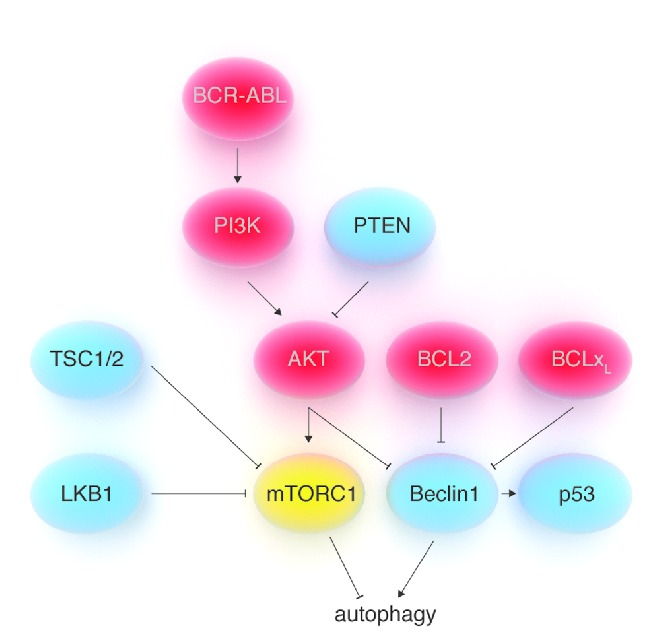Figure 2.

Regulation of autophagy by oncogenes and tumor suppressors. Strong evidence suggests that autophagy could act as a tumor suppressive mechanism. Beclin1 is a tumor suppressor and its deletion in Beclin1+/− mice leads to a cancer phenotype that resembles the one observed with p53+/− mice. In addition, many well-known tumor suppressors (in blue insets) promote autophagy, while many oncogenes (in red insets) are responsible for autophagy inhibition. The oncogenes PI3K and AKT inhibit autophagy by activating mTORC1. In addition, AKT also inhibits autophagy by directly phosphorylating Beclin1, thus promoting its interaction with 14-3-3 proteins and its sequestration at the level of vimentin filaments in the cytoskeleton. BCL2 and BCLxL (which are frequently over-expressed in human cancers, including lymphoid leukemias and lymphomas) inhibit autophagy by binding to Beclin1. Tumor suppressors such as PTEN, TSC1/2, and LKB1 activate autophagy by inhibiting mTORC1. Several mechanisms have been proposed through which autophagy could contribute to oppose carcinogenesis. They include p53 stabilization, increased genome stability, activation of the mitochondrial apoptotic pathway, ‘autophagic cell death’ in cancer cells (either in response to defined agents or to oncogenic transformation), and/or enhancement of antitumor immunity.
